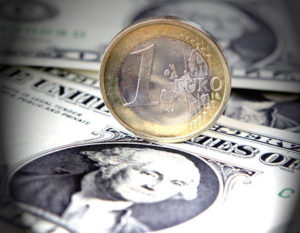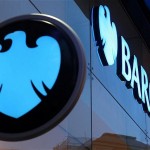 The euro remained stable against the US dollar, following the release of the harmonized index of consumer prices and unemployment rate reports out of the Euro zone, while investorsfocus was on the last string of data from the United States, scheduled this week.
The euro remained stable against the US dollar, following the release of the harmonized index of consumer prices and unemployment rate reports out of the Euro zone, while investorsfocus was on the last string of data from the United States, scheduled this week.
EUR/USD touched a session high at 1.3251 at 9:10 GMT, after which consolidation followed at 1.3243, ticking up a mere 0.01% for the day. Support for the pair was expected to be received at August 2nd low, 1,3190, while resistance was to be met at August 29th high, 1.3340.
It became clear that the number of unemployed people in the Euro zone decreased for a second month in a row in July, thus implying that the moderate pace of economic recovery in the region continued and provided support in the struggle with the record high unemployment. The monthly drop by 15 000 in the number of unemployed has not proved to be sufficient in order to reduce the rate of unemployment in the euro bloc, as the latter remained on the historic high level of 12.1% in July, meeting preliminary estimates. This slow rate of improvement in employment could suggest that if a possible considerable increase in consumer spending was to be seen, it probably would not provide enough support to recovery, which began this April. In addition, the number of unemployed people, aged below 25, increased during July, which also spoke of uneven improvement in economic conditions in the region.
A separate report said that consumer prices in the Euro zone slowed down their rate of increase in August. The preliminary value of the harmonized index of consumer prices, evaluated in consonance with Eurostats methodology, rose by 1.3% in August 2013 compared to August 2012, as it retained the 1.6% rate of increase during July. Experts had projected that consumer inflation in the Euro region will decelerate to 1.4%. The slower rate of inflation was mainly contributed to by lower prices of energy products. The remaining product categories recorded an annual 0.3% climb in their prices.
At the same time, optimism over economic development of the Euro zone considerably improved during the month of August, but yet, the record high unemployment outlined the strong contrast between the developed northern part and the worse performing southern part of the bloc. The index of economic confidence rose for the fourth consecutive month in August by 2.7 points to reach a value of 95.2. The strongest positive trend was seen in Germany and the Netherlands. Improvement was present also in France, Italy and Spain.
Meanwhile, market players awaited the release of the last data string during the week out of the United States, including reports on the index of core personal consumption expenditures, personal income, personal spending, the Chicago PMI and the final reading of University of Michigan Confidence index. Improved results are expected to reinforce the case for a reduced stimulus program by the Federal Reserve Bank.
Elsewhere, the euro was lower against the sterling and the yen, as EUR/GBP cross dipped 0.01% to trade at 0.8541 at 12:14 GMT, while EUR/JPY pair decreased by 0.17% on a daily basis to trade at 130.02 at 12:14 GMT.





